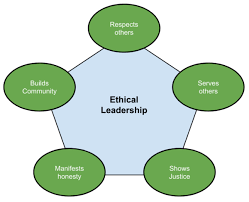The Importance of Ethical Leadership: Building Trust and Integrity
Introduction:
Ethical leadership serves as a cornerstone for building trust, fostering integrity, and creating a positive organizational culture. In an era where transparency and accountability are highly valued, ethical leadership plays a crucial role in driving sustainable success and long-term growth. In this article, we will explore the significance of ethical leadership, its impact on organizations and individuals, and provide actionable insights for developing and practicing ethical leadership principles. Discover the transformative power of ethical leadership in building trust, inspiring teams, and driving positive change.
- Defining Ethical Leadership:
- Exploring the characteristics and qualities of ethical leaders.
- Understanding the role of ethics and values in effective leadership.
- Recognizing the importance of ethical decision-making and accountability.
- Building Trust and Credibility:
- Establishing trust as the foundation of successful leadership.
- Communicating openly and honestly with transparency.
- Consistently demonstrating integrity and ethical behavior.
- Fostering an Ethical Organizational Culture:
- Creating a culture that encourages ethical conduct and values-driven decision-making.
- Aligning organizational values with ethical principles.
- Encouraging ethical behavior through policies, training, and accountability mechanisms.
- Leading by Example:
- Modeling ethical behavior and demonstrating integrity in actions and decisions.
- Being accountable for mistakes and learning from them.
- Inspiring and motivating others through ethical leadership practices.
- Making Ethical Decisions:
- Incorporating ethical considerations into the decision-making process.
- Weighing the impact of decisions on stakeholders and the greater good.
- Balancing short-term gains with long-term ethical consequences.
- Ethical Communication and Transparency:
- Practicing open and honest communication within the organization.
- Ensuring transparency in decision-making processes.
- Encouraging feedback, collaboration, and dialogue.
- Building Ethical Teams:
- Promoting a culture of respect, inclusivity, and fairness.
- Encouraging diverse perspectives and valuing ethical contributions.
- Nurturing a supportive environment that empowers ethical decision-making at all levels.
- Ethical Leadership in Times of Crisis:
- Demonstrating ethical leadership during challenging situations.
- Upholding values and principles amidst uncertainty.
- Inspiring trust and confidence through ethical decision-making and actions.
- Developing Ethical Leaders:
- Investing in leadership development programs that emphasize ethical principles.
- Providing opportunities for self-reflection and continuous growth.
- Mentoring and coaching emerging leaders to embody ethical leadership.
- Measuring and Evaluating Ethical Leadership:
- Implementing mechanisms to assess ethical leadership effectiveness.
- Collecting feedback from employees and stakeholders regarding ethical practices.
- Continuously improving ethical leadership practices based on evaluation results.
Conclusion:
Ethical leadership is fundamental to creating a culture of trust, integrity, and sustainable success within organizations. By embodying ethical principles, fostering transparency, and building trusting relationships, leaders can inspire and motivate teams to reach their full potential. Ethical leadership not only impacts organizational performance but also contributes to the greater good of society. Embrace the importance of ethical leadership and unlock the transformative power of building trust and integrity in your leadership journey.







